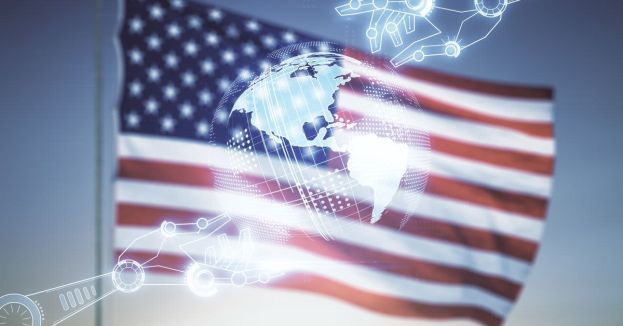This discovery has been described as "more threatening than previously thought," posing "serious challenges to privacy."
The study, published in the American Psychologist journal, reveals that an algorithm's capacity to accurately predict political views is comparable to the success rate of job interviews in predicting job performance or the influence of alcohol on aggression. The study's lead author, Michal Kosinski, an associate professor of organizational behavior at Stanford University’s Graduate School of Business, spoke to Fox News Digital about the research.
The study involved 591 participants who completed a political orientation questionnaire. The AI then captured a numerical "fingerprint" of their faces and compared them to a database of their responses to predict their views. "I think that people don’t realize how much they expose by simply putting a picture out there," Kosinski said.
WATCH: UCLA PROTESTORS LOST THEIR MIND CALLING THE UNIVERSITY A VIOLENT INSTITUTION![]()
Kosinski emphasized the importance of protecting personal information such as sexual orientation, political orientation, and religious views. He noted that while Facebook has restricted access to such information, users' photos remain accessible. "This person never met you, they never allowed you to look at a picture, they would never share their political orientation ... and yet, Facebook shows you their picture, and what our study shows is that this is essentially to some extent the equivalent to just telling you what their political orientation is," he added.
WATCH: TRUMP'S ATTORNEY FACING INDICTMENT IN ARIZONA![]()
April 23, 2024
The study was conducted under highly controlled conditions. Participants wore black T-shirts, removed all jewelry, and if necessary, shaved facial hair. Cosmetics were removed until no residues were detected on a fresh wipe. Hair was pulled back using hair ties, hair pins, and a headband to avoid flyaway hairs.
DRAMATIC COURTROOM TWIST: WIFE OF ACCUSED 'CLIFF-DRIVER' MAKES DESPERATE PLEA FOR HUSBAND![]()
The facial recognition algorithm VGGFace2 was used to examine the images to determine "face descriptors, or a numerical vector that is both unique to that individual and consistent across their different images." The descriptors extracted from a given image were compared to those stored in a database. If they were similar enough, the faces were considered a match. A linear regression was used to map face descriptors on a political orientation scale and then use this mapping to predict political orientation for a previously unseen face.
IS MCDONALD'S BECOMING THE NEW CHAMPION OF AFFORDABILITY?![]()
The authors of the study stressed the need for scholars, the public, and policymakers to recognize and address the potential risks of facial recognition technology to personal privacy. They found that conservatives tended to have larger lower faces. The study warned, "Previous research showed that naturalistic facial images convey information about political orientation and other intimate traits. But it was unclear whether the predictions were enabled by self-presentation, stable facial features, or both. Our results, suggesting that stable facial features convey a substantial amount of the signal, imply that individuals have less control over their privacy."
MICHAEL RAPAPORT FURIOUS AFTER SHOW GETS CANCELED![]()
Kosinski warned that "algorithms can be very easily applied to millions of people very quickly and cheaply." He described the study as "more of a warning tale" about the technology "that is in your phone and is very widely used everywhere."
HOT OFF THE PRESS: DAILY CALLER OBTAINS SECRET GAG ORDER![]()
The authors concluded by emphasizing that "even crude estimates of people’s character traits can significantly improve the efficiency of online mass persuasion campaigns." They urged scholars, the public, and policymakers to consider tightening policies regulating the recording and processing of facial images.








 Discover alternative ideas that will make you think
Discover alternative ideas that will make you think Engage in mind bending debate
Engage in mind bending debate Earn points, rise in rank, have fun
Earn points, rise in rank, have fun


